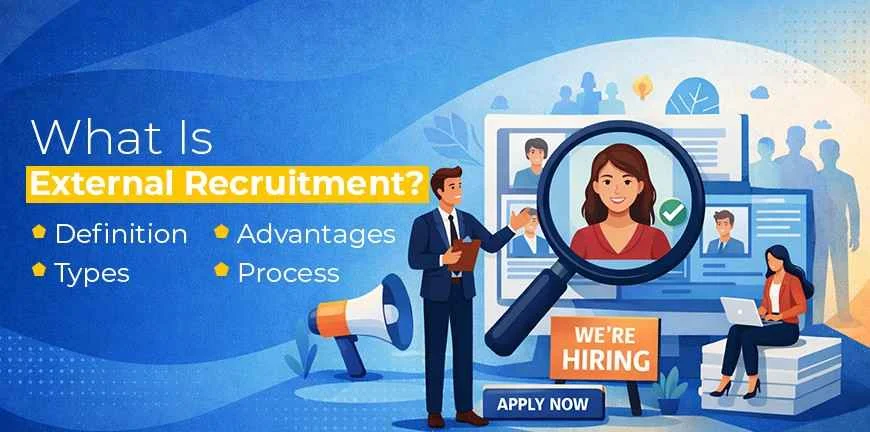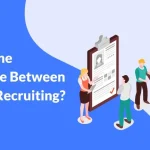
What Is the Difference Between Hiring and Recruiting?
25/08/2025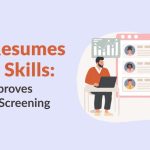
How AI Improves Candidate Screening: From Resumes to Skills
26/08/2025Artificial Intelligence (AI) today is the backbone for transforming the methods in which enterprises are attracting, assessing, and recruiting top talent.AI is a promising and powerful tool that facilitates swifter and smarter hiring. However, the trick is how you utilize it, and if it is not crafted and governed, it might have ethical repercussions.
As Miguel Luengo-Oroz, an AI ethics researcher, says, “solidarity should be a core ethical principle of Artificial Intelligence.” It is not an option to initiate and implement ethical AI recruitment. It is of supreme importance.
Why Ethical AI Matters in Recruitment?
Human bias has always been a factor that undermines recruitment. It does not matter if it’s deliberate or unconscious; it affects the hiring process adversely.
AI provides scope to alleviate this bias if applied wisely. Algorithms are often programmed based on past data, resulting in them recreating discrimination.
This is where Ethical AI changes the game by ensuring that modern hiring technology is not only an accelerator to hiring but also offers myriad opportunities, builds loyalty, and activates manpower diversity.
Vital reasons why ethical AI is critical in recruitment:
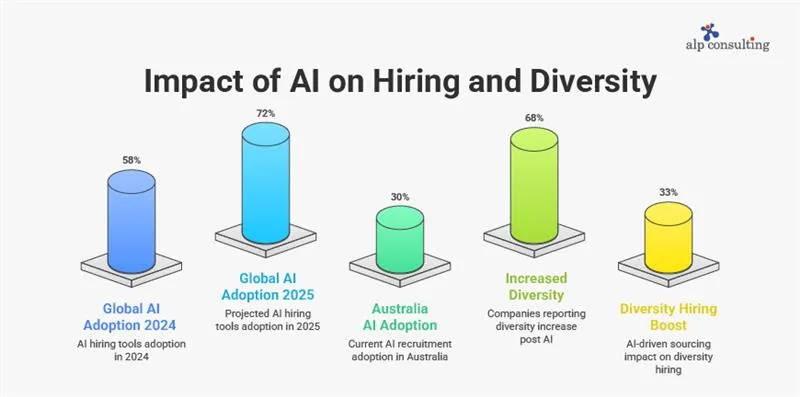
- Fair hiring: Job seekers must be assessed exclusively on factors that are relevant to a job and not unnecessarily discriminatory yardsticks.
- Diversity: AI must assist companies with diving into larger talent banks, rather than limiting them.
- Transparency: Candidates have the right to know the way and when AI is applied in the recruitment procedure.
When Does Bias Penetrate AI Recruitment?
Bias is an element that can creep into the recruitment cycle, even though intentions are good. The following are the stages when bias enters the system:
1. Job Descriptions
Job descriptions, when designed with gender led language or unnecessary requirements, can create socioeconomic and cultural bias. It is always best to use inclusive language and focus on skills-oriented criteria.
2. Training Data
Data gathered over the years that are quite old might reflect past discrepancies and disparities that might be picked up by AI. You must organize and segregate the datasets and erase irrelevant data, like an individual’s location, school reputation, etc.
3. Algorithms
AI algorithms follow patterns, and even if you do not feed delicate data into the model, it will pick it up. It might pick up gaps in employment, adversely affecting certain sections of people. The best solution is to regularly evaluate updated features, run candidate subgroup tests, etc.
4. Assessment Standards
Risk: A problem might arise if the overall accuracy of AI systems is very high. This will mean that AI is performing well for some groups and not for others, leading to unfair representation. You must audit the system regularly, gauge fairness indicators, and other factors like demographics, etc.
5. Deployment & Monitoring
The risk of model drift is imminent as AI is evolving, and it might not recognize the old data it is trained on. It might be completely different from the present data, resulting in unfair and inconsistent decisions.
The solution is to audit systems and track data measurements regularly. Positively facilitate human intervention to authenticate AI recommendations.
What are the Principles of Ethical AI in Recruitment?
Some of the principles enterprises should adopt to facilitate Ethical AI are:
1. Non-Discriminatory and Fair Systems
A structured hiring process must be formulated where candidates are reviewed based on their skills and talent, eradicating irrelevant factors.
2. Clear and Transparent Interactions
Candidates must be aware of how and when AI is used and how it influences decisions. Clear communication about AI-operated systems will foster trust and responsibility.
3. Involvement of Human
Hiring outcomes must be led by humans, who will evaluate the AI-based results and then make the final decision. When ownership is assigned, monitoring compliance, bias-free systems, and ethics is efficient.
4. Data Protection and Privacy
An AI-driven recruitment process involves substantial sensitive data of candidates that is required to be handled very cautiously, following the applicable and relevant regulations.
Creating an Ethical AI Hiring Experience
An AI-powered recruitment can be bias-free, diverse, and transparent if organizations have a well-formulated structure in place. Let us see how:
1. Outline Ethical goals clearly
Build structure and formulate principles that are inclusive of diversity, fair methods, and transparency from the get-go.
2. Ensure fair play across sections.
To ensure fairness across various demographics and groups, there must be regular audits nd assessments conducted, providing equal opportunities
3. Data Privacy to be prioritized
With large volumes of sensitive data floating around, managing them can be tricky, so a proper strategy needs to be in place. The methods must comply with the updated government rules and policies.
4. Constant monitoring and auditing
AI is in its transformative stage, changing daily, and recruiters must be in sync with the developments. Hence, the overseeing and evaluation of AI systems should be a continuous process.
Candidate Experience and Ethical AI
Candidate experience can be enhanced exponentially as bias-laden factors like gender centric language, job gaps, or institution reputation are eliminated by Ethical AI. The modern technology enables the accurate evaluation of candidates based on skills and capabilities, removing irrelevant prerequisites.
A smooth and transparent communication related to how AI is used, with regular constructive feedback, helps candidates understand decisions instead of getting hit by vague rejections.
A welcoming experience for candidates is created by introducing elements like incognito profile screening and assessment, easy-to-use AI tools for special candidates, and an all-encompassing job description.
AI and human intervention together provide candidates with the feeling of respect and appreciation, fostering a strong employer reputation and enhancing the recruitment procedure.
Summary Table
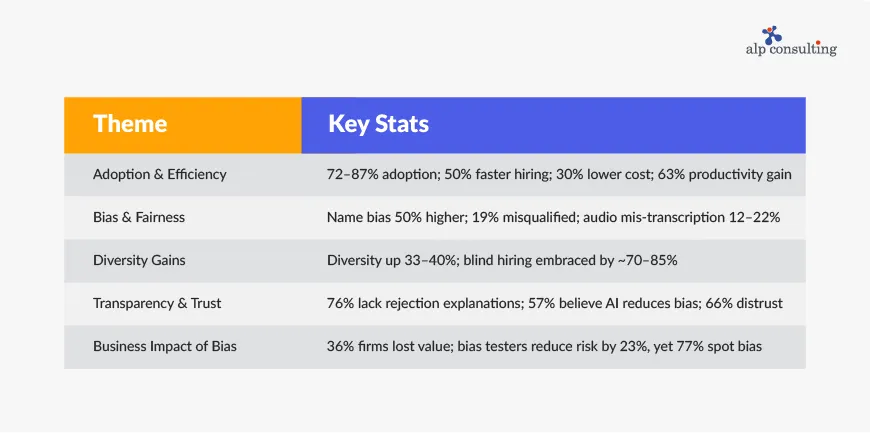
Moving Forward
This is a new world regime where modern technology will be in charge and continue to transform recruitment, but its essence will always lie in how ethical it is. Organizations and recruiters must focus on building teams that include varied individuals; they must try to accelerate their employer image and foster fairness, clear communication, and embrace diverse cultures in the workspace, ensuring that legal risks are at bay. The goal must be to make sensible and meaningful recruitment decisions by adopting AI.
Contact Us For Business Enquiry

Amit Saproo
Amit Saproo is the Head of Operations at ALP Consulting with nearly 17 years of experience in Executive Search, RPO, Leadership, and IT & Engineering recruitment. He leads nationwide recruitment programs across Technology, BFSI, and R&D domains, driving strategic hiring solutions for diverse client needs. Amit excels in building and managing high-performance teams that deliver scalable, end-to-end recruitment and consulting services.



